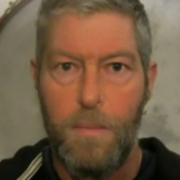
David Donaldson
Versatility is not a bad skill to have in your grab bag when composing music for the screen, where a single scene might call for laughter, excitement, and embarrassment. Composers Plan Nine — the prolific musical collective comprising David Donaldson, Janet Roddick, and Steve Roche — certainly have versatility on their side. One glance at the trio’s eclectic array of instruments makes that clear.
“We started out playing in a group thing, and that’s how we like to work on our soundtracks,” says Donaldson. “That way one person doesn’t have to come up with all the ideas.”
In the 80s, the trio were all key contributors to the Braille Collective, a group of Wellington musicians who began as keen followers of improvised jazz and experimentation. They also spawned label Braille Records.
Raised in the Hawkes Bay, Donaldson had first arrived in Wellington, his longtime home, in 1981, after older brother Anthony phoned and told him he needed a bassist pronto for Braille band Primitive Art Group. Soon David joined vocalist Roddick in Four Volts. “The whole concept behind the Four Volts,” Donaldson told Salient in 1990, “was to do weird covers of other people's songs, and humour was the recipe.”
The Plan 9 trio first shared the same rehearsal space after Four Volts morphed into Six Volts, whose membership also included brother Anthony. The celebrated band took glee in mixing it up in unexpected ways on stage, including assaulting traditional borders between music and sound effects, thanks to an array of unusual instruments (including cake tins and zithers). By 1990 Donaldson was admitting that the band’s interest in creating fresh sounds had reached the “point where we just had so much clutter that we stopped collecting instruments”.
Alongside Donaldson's trusty double bass, a number of those instruments are now used in Plan 9's soundtrack work, including suengs (a Thai lute), a homemade bass banjo, and “anything else that makes a good sound source”. Many of the above are part of the mix on acclaimed documentary Antarctica – A Year on Ice (2013).
The Plan 9 trio first began composing for the screen in the early 90s, on a series of short films. Their first extended score proved an unusual showcase. Peter Jackson and Costa Botes' Forgotten Silver (1995) required a delicate blend of moods. Although the soundtrack encouraged laughter at some points, the music was also alive to the romance in its extra-ordinary tale. Made for a drama slot on television, Forgotten Silver went on to play at the Venice Film Festival.
Plan 9 were on a roll, winning NZ awards for their first two movie soundtracks, fantasy Jack Brown Genius and Costa Botes drama Saving Grace. Since then the accolades have included local nominations for a trio of Gaylene Preston-directed projects: Rita Angus documentary Lovely Rita, Napier quake doco Earthquake, and crooked Sam Neill drama Perfect Strangers (which also took away a gold at American soundtrack festival Park City).
Plan 9 have also carved out a fine line in offbeat black comedies: What We Do in the Shadows, Kombi Nation, Diagnosis: Death, and the knowingly full-throttle score for Fresh Meat. Many of the comedies have been directed by longtime collaborator, director Jason Stutter, who calls them “musical geniuses”. Stutter's feature Predicament (2010), would score them another best soundtrack award, and see them working for the first time with the NZ Symphony Orchestra.
Their documentary work includes the acclaimed Ross Sea doco Last Ocean, Animal Planet series Orangatan Island, and more than 110 episodes of NHNZ true life series I Survived.
There have also been varied contributions for director Peter Jackson, usually in collaboration with former Six Volts member David Long. Although Forgotten Silver is their only Jackson credit as main composers to date, the trio have written a number of the songs heard in Jackson's various journeys into Middle Earth: most notably Misty Mountains, which the dwarves sing in the opening sequence (and trailer) of The Hobbit. The composition is later repeated as part of Howard Shore's score. Plan 9 and David Long also contributed two tracks that were used prominently in 2009's The Lovely Bones.
Plan 9 remain a hard operation to pin down. Alongside 20+ features and many hours of television, they have composed soundscapes for museums and the NZ pavilion at the 2010 World Expo, as well as music for RNZ and commercials. They won raves for their "elegant, sensual" music (said Lumiere) in collaborative show The Songs of Kurt Weill, which has played at numerous NZ arts festivals; and they worked with multi-media artist Tim Gruchy on Zig Zag, a live piece showcasing the legendary Len Lye.
The Plan 9 trio have also released two pop albums as The Brainchilds. The duo of Donaldson and Roche have since released four albums under the name Thrashing Marlin, including 2011’s Donkey Deep, which Donaldson describes as “a culmination of all the work we’ve been doing for the last 20 something years”. Donaldson and his brother Anthony also play and record with Wellington almost super group The Labcoats.
Donaldson's skillset also extends to directing. In 2012 he completed proudly over the top short film Beep Beep and the Island of Terror. His 2007 short 30 Arthur Street is an impressionistic musical tribute to the building in central Wellington that served as Plan 9's longtime studio home, until it was demolished for a bypass.
Sources include
David Donaldson
Steve Roche
Janet Roddick
Plan 9 website. Accessed 14 June 2018
David Eggleton, Ready to Fly (Nelson: Craig Potton Publishing, 2003)
Emma Neale 'something stupid' (Interview with Six Volts) - Salient, 23 July 1990 (Volume 53, Issue 17)
Graham Reid, ‘THE FAMOUS ELSEWHERE QUESTIONNAIRE: David Donaldson of Thrashing Marlin’ Elsewhere website. Loaded 19 September 2011. Accessed 19 June 2014
Diane Spodarek, 'The songs of Kurt Weill' (Review) – Lumiere website. Loaded 15 March 2008. Accessed 19 June 2014